Did you know? Nearly 70% of Charlotte apartment residents own a pet, but only half understand how pet deposits and fees really work. If you’re searching for a friendly apartment in Charlotte and own a pet, understanding the ins and outs of pet rent, deposits, and additional monthly fees can help you avoid surprise costs—and prepare you to negotiate the best terms. In this guide, you'll get comprehensive, up-to-date answers about securing pet-friendly apartments in Uptown, South End, NoDa, and beyond. Let's dig in to discover exactly what you can expect to pay, how to spot hidden fees, and how to protect your (and your pet’s) interests as a tenant.
"Nearly 70% of Charlotte apartment residents own a pet, but only half understand how pet deposits and fees really work."
Understanding Pet Deposits and Fees in Charlotte Apartments
If you have a furry companion, pet deposits and fees in Charlotte apartments are a key part of your rental experience. As pet-friendly apartments have become more popular across neighborhoods like South End, renters must consider costs beyond regular rent. Pet deposit and pet fee policies vary across apartment complexes, sometimes resulting in confusing lingo and unexpected charges. Additionally, pet rent—a monthly fee added to your regular rent—can differ between affordable and luxury apartments.
These charges usually serve two purposes: protecting the property from potential damage caused by pets, and warranting extra services or amenities for animal-friendly living. Unlike a standard security deposit—which generally covers all tenant-related damages—pet-specific costs are often non-refundable and may be collected at the beginning of your lease. In North Carolina, there are certain legal guidelines that landlords must follow, but specifics often depend on the type and size of your pet, the apartment's age, and its location in Charlotte. Understanding these pet deposit and fee structures will help you confidently navigate the rental market.
-
What You'll Learn:
Key terms surrounding pet deposits and fees in Charlotte apartments
The differences between pet rent, pet fees, and pet deposits
Average costs in Charlotte
Negotiation tips and legal considerations
Answers to the most common questions
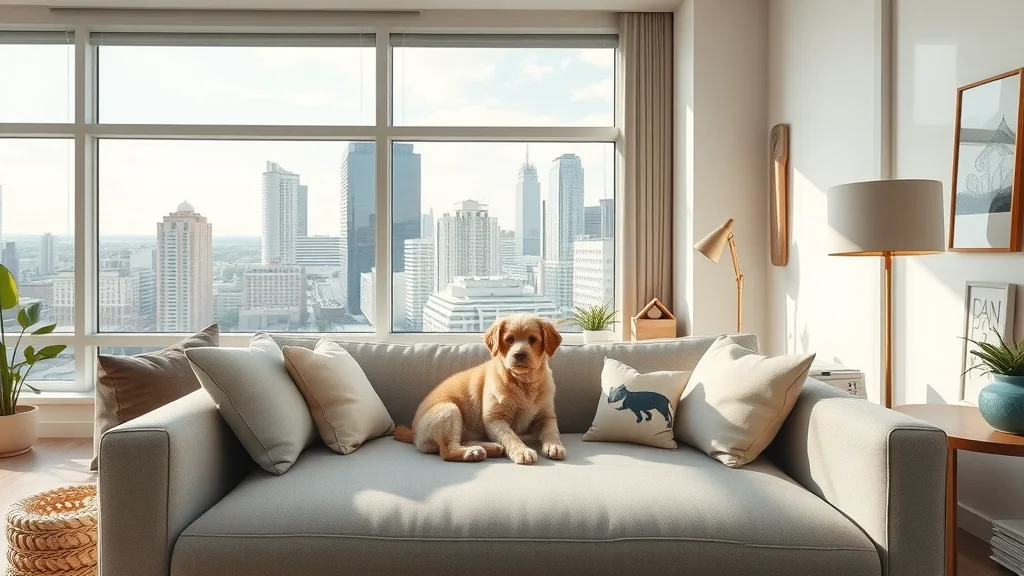
Key Differences: Pet Deposit, Pet Fee, and Pet Rent in Charlotte Apartments
Many renters confuse pet deposit, pet fee, and pet rent—but each term has a distinct meaning in Charlotte apartments. A pet deposit is a refundable amount (if no damages occur) collected at the beginning of the lease. It's designed to cover possible wear and tear from pets, and is often outlined in the lease. In contrast, a pet fee is a one-time, non-refundable charge, which covers the privilege of having a pet but not potential repairs. Finally, pet rent functions as an ongoing monthly fee added to your rent and is never refundable, regardless of the property condition upon move-out.
This system allows Charlotte landlords to protect their rental property while also managing added cleaning and maintenance. Since pet rent and pet deposit policies can differ widely, understanding the implications of each can prevent unanticipated expenses. Monthly pet rent and non-refundable pet fees are particularly common in high-demand areas, reflecting market trends and the premium placed on pet-friendly amenities. The table below offers a side-by-side comparison.
Charge Type |
Definition |
Typical Amount (Charlotte) |
Refundable? |
|---|---|---|---|
Pet Deposit |
Refundable amount collected at lease start—used for potential pet damage. |
$200–$400 |
Yes, if no damage. |
Pet Fee |
One-time, non-refundable fee paid for having a pet. |
$200–$350 |
No |
Pet Rent |
Monthly fee added to rent for pets in the apartment. |
$15–$35/month per pet |
No |
Why Charlotte Apartments Charge Pet Fees and Deposits
Apartments in Charlotte, especially in competitive neighborhoods like South End or Uptown Charlotte, charge pet fees and deposits to balance tenant accessibility with asset protection. Animals contribute to normal wear and tear, but can also cause unexpected damage. Pet deposits—distinct from standard security deposits—allow landlords to address issues such as scratched flooring or stained carpets without penalizing all tenants. Conversely, monthly pet rent and one-time pet fees help offset routine maintenance and cleaning due to increased pet occupancy.
As pet ownership climbs in Charlotte, more pet-friendly apartments compete for tenants by promoting pet-inclusive amenities like dog parks, in-unit washing stations, and pet lounges. However, premium features can also drive up costs, making thorough review of pet deposit and pet fee terms crucial. Transparency in these charges not only protects landlords but helps renters make informed decisions about where their pets will feel welcome.
"Pet deposits protect the property, while pet rent offsets increased wear and tear over time." – Charlotte Apartment Association
Average Pet Deposits and Fees for Friendly Apartments in Charlotte
In Charlotte, average pet deposits and fees reflect both the city’s growing popularity with pet owners and its diverse rental market. Generally, expect to pay a pet deposit of $200 to $400, though luxury apartment complexes may charge higher amounts. The average pet fee—a common one-time, non-refundable payment—hovers between $200 and $350. In most cases, this is collected at the beginning of your lease. Monthly pet rent typically ranges from $15 to $35 per animal, depending on the type and size of pet allowed.
Popular neighborhoods boast varying costs. In South End, premium pet rent and pet fee rates trend higher, reflecting new builds and high-end amenities. Meanwhile, older units in other Charlotte areas may offer lower fees and more flexible policies for multiple pets. Comparing friendly apartments across neighborhoods helps pinpoint deals, especially when balancing upfront costs against recurring monthly rent and pet rent expenses.
-
Typical Charges in Charlotte:
Pet deposit: $200–$400
Pet fee: $200–$350
Monthly pet rent: $15–$35 per pet
-
By Neighborhood:
South End: Higher fees due to newer, luxury buildings
Uptown: Moderate to high fees, reflective of prime location
NoDa: More varied—trendy complexes often feature moderate fees
Pet Deposits and Fees Charlotte Apartments: How Location Affects Cost
Location plays a pivotal role in determining pet deposits and fees Charlotte apartments. Certain neighborhoods, such as South End, Uptown Charlotte, and NoDa, see higher fees, driven by increased demand for pet-friendly amenities and upscale complexes. In South End, luxury apartments may charge double the standard pet deposit, while properties in NoDa offer more diversity in fee structure, attracting pet owners with competitive pricing.
If you’re prioritizing affordability, consider exploring older or less centralized friendly apartments outside these hotspots. Not only are upfront pet deposits lower, but monthly pet rent is often more reasonable. Always compare the ongoing costs—pet rent, pet deposit, and pet fees—spelled out in your lease to avoid surprises. Savvy renters should always evaluate total occupancy costs as part of their apartment search.
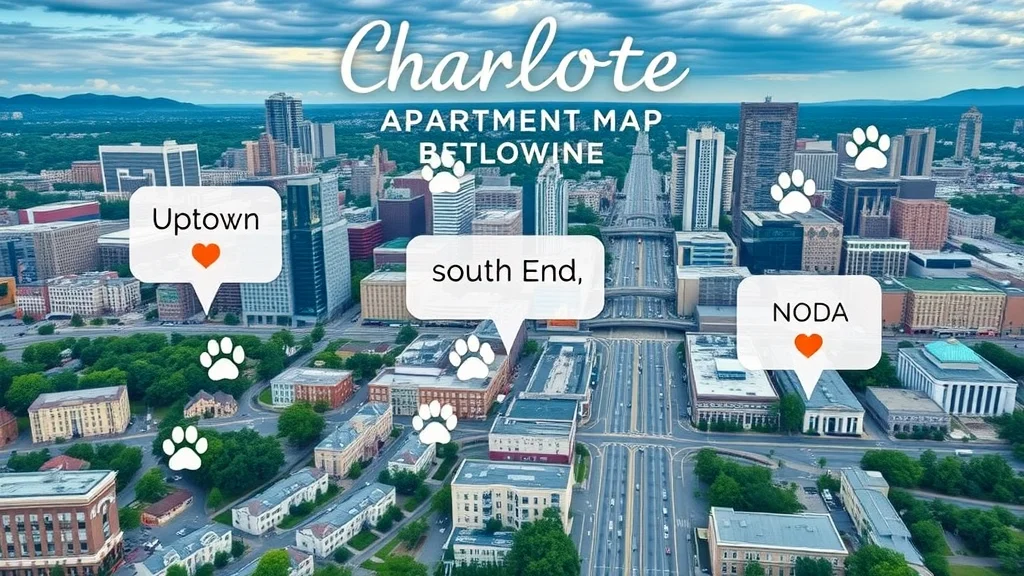
-
High-demand, pet-friendly areas:
Uptown: Upscale buildings, higher pet rent, and deposit
South End: Modern amenities, premium pet fees
NoDa: Trendy, artist-centric, more flexible fee structures
Factors That Affect Pet Deposits and Fees Charlotte Apartments Charge
Several factors influence pet deposits and fees Charlotte apartments may charge, including the type and size of pet. Larger dogs generally incur higher deposits, while certain breeds—based on insurance or landlord preferences—may be restricted or subject to extra fees. Number of pets also matters; most apartments implement a limit (often two pets), but allowing more might mean increased pet rent or additional non-refundable fees.
Property type significantly affects cost. Luxury apartments with dog parks, pet washing stations, and pet social hours often charge double the deposit of standard or older apartment complexes. This is due to more costly finishes and elevated service expectations. Landlords consider the possible wear and tear associated with multiple pets or larger breeds and adjust their security deposit and monthly fee to match the risk. Always ask about breed restrictions, weight limits, and the potential for negotiation during your apartment search.
"Luxury apartments in Charlotte can charge double the pet deposit compared to older, smaller buildings."
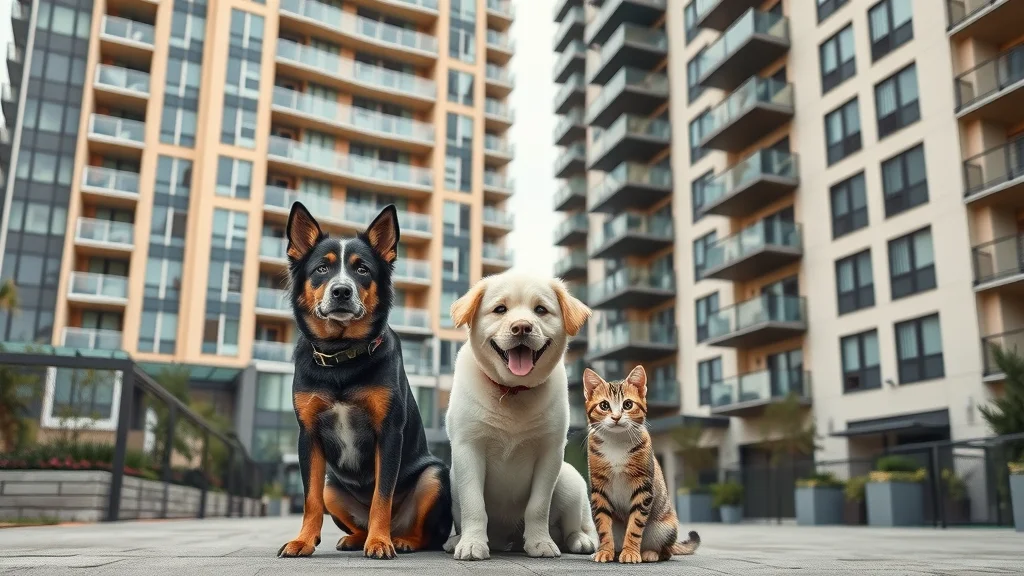
-
Factors influencing pet deposits and fees:
Type and size of pet (larger pets usually mean higher fees)
Breed restrictions (some breeds may be prohibited or require higher deposits)
Property type (luxury vs. standard or older buildings)
Number of pets—most allow 1–2, extra pets mean extra charges
Pet Policies: What Friendly Apartments in Charlotte Require
Each friendly apartment in Charlotte has its own pet policy, but some standard requirements remain consistent. Tenants are usually required to provide vaccination and medical records as proof of pet health and compliance with local ordinances. Many Charlotte apartments enforce weight limits (often under 50 lbs. per pet) and may restrict certain breeds due to insurance liabilities or property-specific concerns.
The number of pets allowed typically maxes out at two per unit, though some flexible landlords may negotiate for more with increased pet fees. Pet-friendly features—dog parks, pet washing stations, welcome treats, and in-unit pet corners—are increasingly common, especially in South End and Uptown. Always review policies outlined in the lease for breed and weight limits, vaccination requirements, and whether there are any special amenities for pets allowed on-site.
-
Standard pet policy requirements:
Proof of current vaccinations and medical history
Breed and weight restrictions (often under 50 lbs, certain breeds excluded)
Number of pets allowed (typically up to 2)
On-site amenities: Dog parks, bathing stations, pet lounges, waste stations
Pet Rent and Pet Deposit Regulations in Charlotte Apartments
Pet rent and deposit regulations in Charlotte are governed by North Carolina law and local ordinances. Legally, pet deposits must be placed in a trust account, and tenants should be informed whether the deposit is refundable or non-refundable before signing a lease. In most cases, pet deposits are refundable if there is no pet-related damage after move-out. Conversely, pet rent and pet fees are non-refundable and serve as a cost for the privilege of housing pets, not for future repairs.
Recent legislative trends seek to increase transparency and set limits on non-refundable charges, but actual pet deposit and pet fee amounts are typically at landlord discretion, within reason. Tenants should always request documentation regarding how their deposits are held and applied. North Carolina law prohibits extra charges for verified service or emotional support animals, and violations can be reported to the NC Real Estate Commission. Staying aware of legal changes helps tenants negotiate better terms and avoid unlawful fees.
-
State and local regulations:
Pet deposits must be held in a trust account and are usually refundable
Pet rent and pet fees are non-refundable as outlined in the lease
Service animals are exempt from pet deposit and pet rent
Maximum pet deposit (usually up to two months’ rent in NC)
"Under North Carolina law, pet deposits must be kept in a trust account and are often refundable — unlike pet fees or pet rent." – NC Real Estate Commission

How to Negotiate Pet Deposits and Fees with Charlotte Landlords
Negotiating pet deposits, fees, or pet rent with landlords is not only possible, it is increasingly common in Charlotte’s competitive rental market. Many landlords are willing to reduce one-time pet fee costs, slightly lower pet deposits, or waive part of the monthly fee if tenants demonstrate responsibility. Offering pet references from previous landlords or providing proof of pet insurance can serve as strong bargaining points, especially for owners of traditionally restricted breeds.
Tenants may also suggest offering a higher security deposit in lieu of a separate pet deposit, which appeals to landlords seeking overall protection of their rental property. Presenting documentation of completed training or having a vetted history of pet ownership may also help negotiate lower pet rent and pet deposit. Persistence and polite conversation are key—remember that open communication can save you substantial funds over the length of your lease.
-
Effective negotiation tips:
Provide pet references from prior landlords or property managers
Show pet insurance or a vet’s statement of health and training
Offer to increase your security deposit in place of a pet deposit
Video Walkthrough: Choosing the Right Pet-Friendly Apartment in Charlotte
A professional tour of several modern Charlotte apartment complexes, highlighting pet-friendly amenities, dog parks, in-unit pet features, and interviews with leasing managers discussing their pet policies and fee structures for renters with pets.
Pet Rent, Fees, and Deposits in South End and Popular Charlotte Neighborhoods
The South End neighborhood exemplifies the new standard for pet-friendly apartments in Charlotte, with premium amenities and higher upfront costs. Here, pet fees and pet rent can be 20–40% higher than city averages, driven by the demand for walkability, pet services, and proximity to parks. Uptown and Elizabeth neighborhoods also present competitive markets but may feature more established buildings, allowing for moderate fees and more flexible pet policies. Renters looking for budget-friendly options should compare not only rent and pet deposit costs but also bonus features like pet spas and outdoor play zones, which can justify slightly higher monthly fees.
If you’re evaluating where your money will go further, weigh both the monthly fee and the included perks for your pet. South End leads the city in high-end features for both humans and pets, but costs reflect these upgrades. Uptown offers a balance of convenience and mid-tier fees, while Elizabeth can be a sweet spot for value-oriented pet owners. Always review lease agreements carefully and confirm if deposits are refundable, pet fees are one-time, and how rent is calculated for each pet in your household.
-
Neighborhood snapshots:
South End: $350 pet fee, $400 pet deposit, $35/mo pet rent
Uptown: $250 pet fee, $300 deposit, $25/mo rent
Elizabeth: $200 pet fee, $250 deposit, $20/mo rent

People Also Ask About Pet Deposits and Fees Charlotte Apartments
Do landlords charge a pet deposit?
Yes, most Charlotte landlords charge a pet deposit to cover potential damage from pets. The amount varies by property, pet type, and location.
Why are pet deposits so expensive?
Pet deposits are high because they protect property owners from potential pet-related damages, which tend to be high-cost repairs.
How to negotiate a pet deposit?
Tenants can negotiate by sharing pet references, offering extra insurance, or proposing a higher overall security deposit instead of a separate pet deposit.
Can a landlord charge a pet deposit for a service dog in NC?
No. In North Carolina, landlords cannot charge a pet deposit for verified service animals, as they are not considered pets under the law.
Video Guide: Top 5 Pet-Friendly Apartments with Low Fees in Charlotte
A quick highlight reel of five of the city’s best pet-friendly apartments offering the lowest pet deposits and fees, complete with amenity walkthroughs and renter testimonials.
Frequently Asked Questions about Pet Deposits and Fees Charlotte Apartments
Are pet deposits refundable in Charlotte apartments?
Yes, pet deposits are typically refundable if your pet does not cause any damage, as outlined in the lease and per North Carolina law.What if my pet causes no damage?
If a thorough inspection upon move-out reveals no pet-related damages, you should receive your full pet deposit back, similar to the return process for a standard security deposit.Can I dispute high pet rent?
Yes, you can negotiate directly with the landlord or property manager. Bringing evidence of responsible pet ownership or market comparisons may help reduce your monthly fee.
Key Takeaways: Pet Deposits and Fees Charlotte Apartments
Always clarify pet deposit, pet fee, and pet rent terms before signing a lease
Compare neighborhoods for the best mix of pet-friendly amenities and reasonable costs
Negotiate with landlords by providing references and insurance details
Know your rights under North Carolina law—service animals are exempt from extra fees
Carefully review the lease for breed, size, and number of pets allowed
Get Ahead: Stay Informed About Pet Deposits and Fees in Charlotte Apartments
"Boost your property's visibility and attract more tenants! Subscribe to Apartment Neighorhoods News at https://apartmentneighborhoods.com"
Conclusion: Whether you're searching for premium pet amenities or want to avoid hidden costs in your next friendly apartment, knowing the facts about pet deposits and fees Charlotte apartments will help you and your pet feel right at home in Queen City.
 Add Row
Add Row  Add
Add 


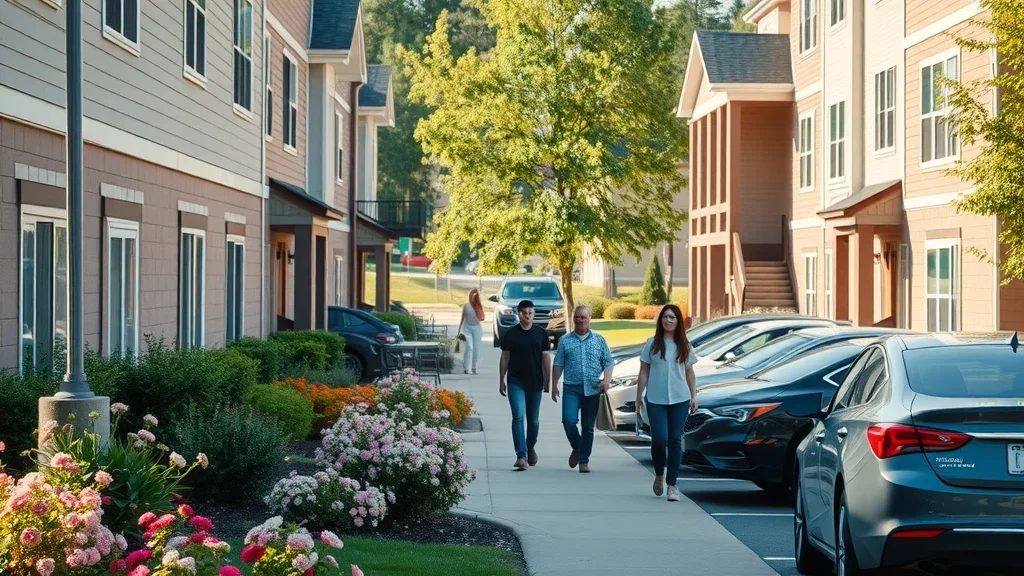
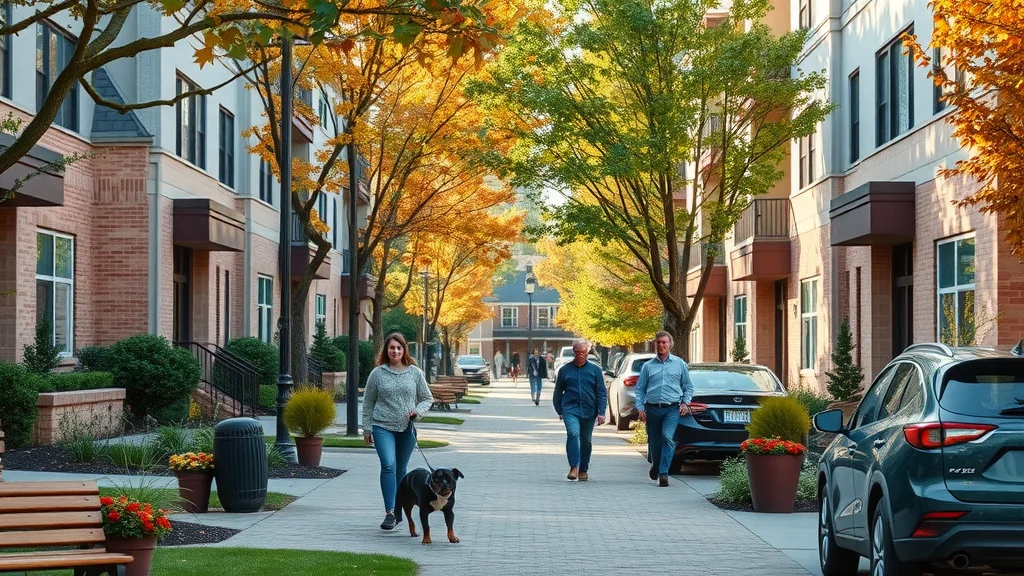
Write A Comment